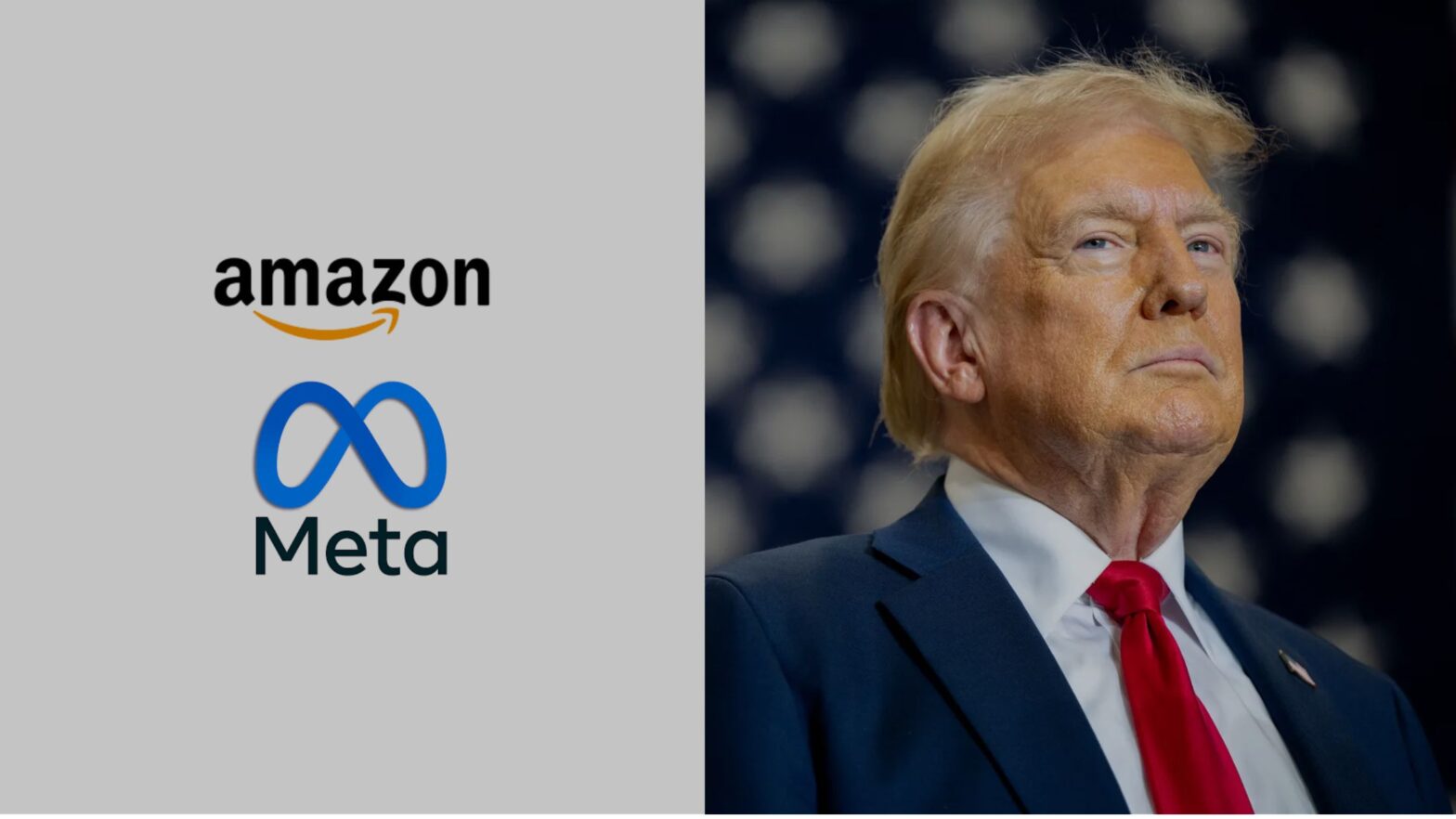Tech giants Back Trump: $1 million donations from Amazon, Meta, and OpenAI spark debate
December 16, 2024

Angela Abril
The intersection of politics and Big Tech is once again in the spotlight. Recent reports confirm that tech giants Amazon, Meta (formerly Facebook), and OpenAI have each pledged $1 million to support Donald Trump’s presidential inauguration committee. This move has ignited widespread debate, shedding light on the complex dynamics between tech companies, politics, and public perception.
A Political investment or a strategic move?
For years, the relationship between Big Tech and Washington has been under scrutiny. This latest announcement of multi-million-dollar donations raises questions about the motivations behind these decisions. Are these companies aligning themselves politically, or is this a calculated effort to secure favorable policies under a potential Trump administration?
- Amazon, led by founder Jeff Bezos, has long faced antitrust scrutiny and regulatory challenges. Contributing to Trump’s inauguration could be seen as a strategic move to mend ties with a government that has historically questioned the company’s dominance.
- Meta, under the leadership of Mark Zuckerberg, remains under pressure for its handling of misinformation and privacy policies. Supporting Trump’s inaugural committee might aim to ease regulatory tensions and secure a more favorable political environment.
- OpenAI, a leader in artificial intelligence, operates in an increasingly regulated space. As governments worldwide look to control AI’s development and deployment, OpenAI’s donation may signal an attempt to influence political decisions around emerging technologies.
Public perception: a divided response
While corporate political donations are not unusual, the scale and timing of these contributions have sparked significant debate. The companies are facing mixed reactions:
- Criticism: Detractors argue that these donations compromise corporate values and align these companies with controversial political figures. For Amazon and Meta, which already face public distrust over monopolistic power, this move could further alienate users.
- Support: Others see these donations as a pragmatic move. Backing an incoming administration, regardless of political affiliation, can ensure smoother relations and growth opportunities.
The bigger picture: big tech’s political influence
This is not the first time major tech companies have contributed to political campaigns or presidential inauguration committees. Historically, companies across industries have used donations to gain access and influence policy decisions. However, growing scrutiny of tech companies—particularly their societal impact—puts these actions under a magnifying glass.
From content regulation to antitrust legislation, the Trump administration’s stance on Big Tech will be pivotal in shaping the future of these companies. Aligning their interests with the administration from the outset could position Amazon, Meta, and OpenAI favorably in upcoming regulatory discussions.
What does this mean for the future?
These donations signal a clear acknowledgment of the shifting power dynamics in Washington and highlight Big Tech’s recognition of how the political landscape affects their operations. However, such moves also carry risks:
- Regulatory Uncertainty: While donations may ease tensions in the short term, they do not guarantee immunity from ongoing investigations or future regulatory changes.
- Reputational Impact: Corporate values and public perception are critical to long-term success. Aligning with any political figure, particularly a divisive one, risks lasting backlash from customers and stakeholders.
Conclusion: a calculated gamble by tech leaders
Amazon, Meta, and OpenAI’s $1 million donations to Donald Trump’s inauguration fund underscore how deeply intertwined technology and politics have become. While these contributions may help secure influence in Washington, they also intensify the tension between corporate interests, public perception, and political alliances.
In an era where tech companies are under constant scrutiny, every decision—including political donations—will shape their future in business and in the public eye.
Ultimas publicaciones

December 16, 2024
Tech giants Back Trump: $1 million donations from Amazon, Meta, and OpenAI spark debate

December 16, 2024
Deel and the Rise of Remote Work: What Is This Fintech Doing Differently?

December 16, 2024

